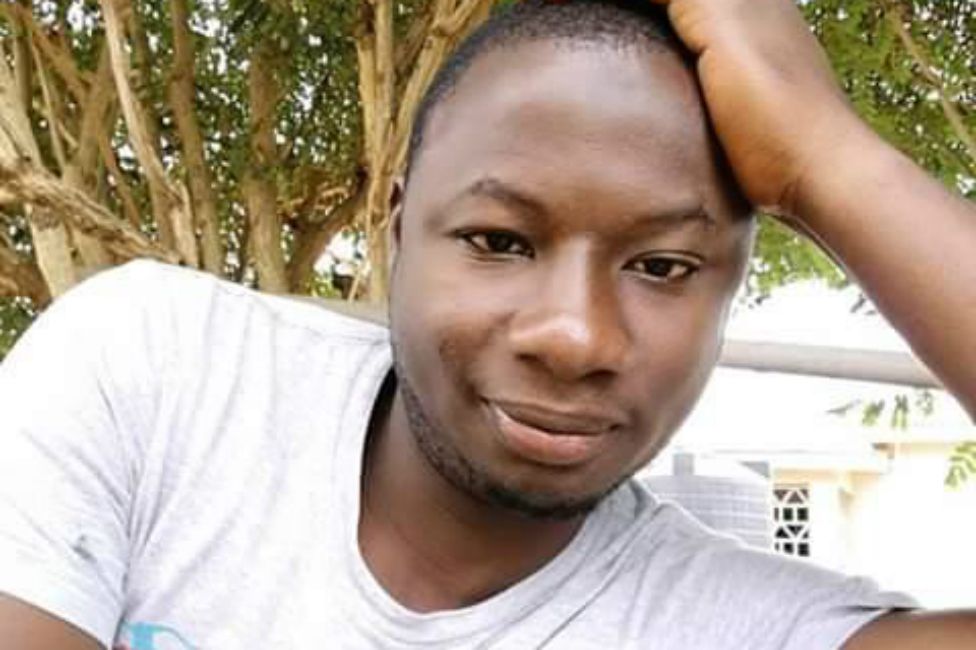Four years after killing of Hussein-Suale journalists in Ghana face mounting threats

On this fateful day on January 16, 2019, four years ago, an ominous, foreboding message rung through the airwaves, phone lines and messaging apps. Ahmed Hussein-Suale Divela had been cold-bloodedly murdered not far from his home in Madina, Accra.
He had received death threats in the past for his work. Hussein-Suale works closely with Anas Aremeyaw Anas, one of Ghana and Africa’s remarkable investigative journalists, and they have done some important work that threw light on many bad guys, some of them close to the powers that be.
His cowardly murder followed in the heels of the broadcast of Number 12, an investigative documentary that revealed the stinky rot in Ghana football. Caught in the web were the then Ghana Football Association Chairman, Kwasi Nyantakyi, some football administrators and referees. Most of them have been dismissed.
Not that the rot wasn’t known or suspected, because much of it was in open sight, but there wasn’t irrefutable evidence to prove the sickening behaviours at the highest level of football administration in the country before then.
Soon after that, the threats to Hussein-Suale’s life intensified and was led by Kennedy Agyapong, a Member of Ghana’s Parliament, who is currently putting himself up to contest for the presidential ticket of the ruling New Patriotic Party.
There were eyewitnesses that saw the two killers, sketches have been made of the two and handed to the police. There have been assurances that the killers would be found, but it’s been four years now, and it does appear as though everyone has just moved on. There are hardly any updates on the matter. And as it is, journalists in Ghana continue to be harrassed, assaulted, arrested, detained and tortured for doing their work.
The President had given several assurances that the killers would be found. This is one instance. “Intense efforts are being made to find Hussein-Suale’s killer or killers. They will be found and brought to justice,” President Akufo-Addo told the Ghana Bar Association’s annual conference on September 9, 2019.
With time, some of the witnesses to the murder have been cowed, forcing one to relocate out of Accra. One of the witnesses was cited in a report by Forbidden Stories in January 2020 saying they chose to relocate out of Accra to Kumasi.
“In fact, a policeman came to see me here a few days after the assassination. And he ordered me not to say anything to anyone,” another told Forbidden Stories.
The murder of Hussein-Suale was meant to send a strong signal not only to Anas and his team, but to all critical journalists. Because after the dastardly, cowardly killing of Hussien-Suale, attacks on journalists in Ghana have been consistent. Political party activists, members of the police, military and national security have assaulted, harassed, arrested, detained and tortured journalists, often with impunity and there are no records of anyone being sanctioned – creating the impression that critical journalism is a crime.
The Committee to Protect Journalists (CPJ) has documented at least, 30 other Ghanaian journalists and media workers who have faced abuses in connection with their work, including attacks, threats, and arrests.
The chilling effect of that murder and the continuous abuse of journalists and media workers have the uncanny potential of impacting how journalists and media workers did their work. Most journalists are now afraid to hold the powerful to account and editors who get phone calls to take down stories people are not happy with, sheepishly oblige. Some young reporters have spoken about how their managers and editors have talked them out of pursuing important stories with potential to expose powerful and connected people.
It has become common to hear people in positions of trust urge journalists to promote businesses and to do what they call ‘developmental journalism’, which more often than not, is simply regurgitating official accounts without fact-checking them, including half-truths and outright falsehoods.
The unsolved murder of Hussein-Suale and the recurring incidents of attacks on journalists, media workers and houses which go unpunished, remain indelible blots on Ghana’s democracy.
If journalists are murdered, arrested, detained, harassed and tortured for doing journalism, it doesn’t only endanger everyone else, it also becomes an existential threat to democracy itself.
By Emmanuel K Dogbevi
Copyright ©2023 by NewsBridge Africa
All rights reserved. This article or any portion thereof may not be reproduced or used in any manner whatsoever without the express written permission of the publisher except for the use of brief quotations in reviews.
